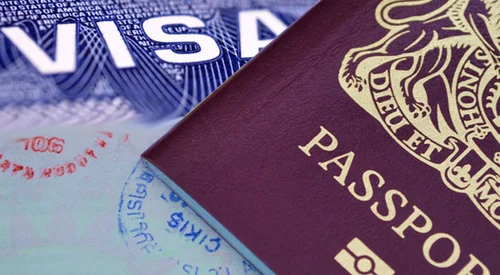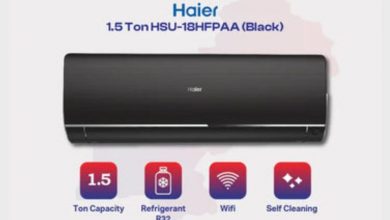Warning: New Changes to US Visa Processing Could Delay Your Migration Plans—Act Now

Why Delays in US Visa Processing Are a Growing Concern
The landscape of US visa processing is becoming increasingly complex, with recent changes introducing new obstacles for those seeking to migrate. Delays are no longer just an inconvenience; they are a significant disruption to the lives of families, professionals, and entrepreneurs. These bottlenecks can derail carefully planned career transitions, family reunifications, or even urgent travel for business and education.
What’s more concerning is how unprepared many applicants are for the hidden ripple effects of these delays. Beyond the visible frustration of waiting, delays can lead to expired documents, lost job opportunities, and escalating costs—issues that few consider when embarking on the visa journey. These challenges are compounded by shifting regulations, understaffed consulates, and an unprecedented backlog that creates uncertainty.
For applicants from India and Pakistan, the stakes are even higher, with processing times at certain consulates becoming notoriously slow. Understanding the causes and preparing accordingly is no longer optional—it’s essential to avoid costly setbacks and maintain control over your migration plans.
The Hidden Costs of Delays on Your Migration Plans
Visa processing delays are more than just a waiting game—they can have tangible and sometimes irreversible consequences. For individuals and families navigating the complexities of migration, these hidden costs can add up quickly, affecting both finances and emotional well-being.
Financial Losses from Prolonged Waiting Times
Delays often translate into unexpected expenses. Whether it’s rescheduling travel plans or losing deposits on accommodation, the financial impact can be significant. For professionals and entrepreneurs, delays may mean missed business opportunities or the inability to start a new job on time. Common financial consequences include:
- Paying for expedited document renewals (e.g., passports, medical tests).
- Losing income from delayed employment start dates.
- Increased costs for rebooking flights or extending stays in temporary housing.
- Additional fees for reapplying if a visa expires during processing.
Emotional Toll on Families and Professionals
The uncertainty caused by delays takes an emotional toll, especially for applicants who are separated from loved ones or unable to move forward with life plans. Key stressors include:
- Fear of visa rejection after long waiting periods.
- Anxiety over missed milestones, such as a child’s school enrollment.
- Strained relationships due to prolonged family separation.
- Feeling stuck or helpless as plans remain in limbo.
Understanding these hidden costs underscores the importance of taking proactive measures to mitigate delays. By preparing thoroughly and staying informed about potential bottlenecks, applicants can reduce both financial and emotional risks.
Proactive Steps to Avoid US Visa Processing Delays
While delays in visa processing can feel inevitable, there are practical steps applicants can take to minimize the risk. By being proactive and meticulous, you can reduce unnecessary setbacks and improve your chances of a smooth migration process.
How to Ensure Your Documentation Is Error-Free
Incomplete or incorrect documentation is one of the leading causes of delays. Even a small oversight can trigger additional reviews or RFEs (Requests for Evidence). To avoid these issues, consider the following:
- Double-check all forms for accuracy before submission, ensuring names, dates, and personal details match official documents.
- Provide supporting evidence in a clear and organized manner to reduce ambiguity.
- Include certified translations for any non-English documents.
- Stay up-to-date with the latest requirements for your specific visa category to avoid missing newly introduced forms or evidence.
Timing Matters—When to Apply to Minimize Delays
Applying at the right time can significantly impact processing speed. Key timing strategies include:
- Submit applications during off-peak periods (avoid holiday seasons or periods known for high application volumes).
- Schedule consulate appointments early to secure optimal dates before slots fill up.
- Monitor processing times regularly through official government portals for updates specific to your visa category and location.
Leveraging Legal Experts to Expedite the Process
Partnering with experienced immigration professionals can provide an edge in navigating delays. They can:
- Help identify potential red flags in your application.
- Advise on alternative strategies to expedite approvals.
- Represent your case effectively in complex scenarios.
Taking these proactive steps can help reduce uncertainty and ensure your visa application stays on track despite evolving challenges in the US immigration system.
How New Technology Can Help You Stay Ahead
In today’s fast-paced world, leveraging technology can be a game-changer when navigating US visa processing. From tracking updates to streamlining communication with consulates, using the right tools can help you stay informed, organized, and proactive during the application process.
Tools and Platforms for Real-Time Visa Updates
Technology offers various ways to monitor the progress of your visa application and stay updated on policy changes. Consider using:
- Government Portals: Websites like the US Citizenship and Immigration Services (USCIS) portal provide real-time case status updates.
- Visa Appointment Trackers: Some third-party apps and websites monitor appointment availability at consulates.
- Email and SMS Alerts: Many consulates offer notification services for updates on application status or changes in processing times.
Streamlining Communication with US Consulates
Reaching out to consulates can often feel like navigating a maze. Technology can simplify this process:
- Online Appointment Scheduling Systems: Book and reschedule interviews online with virtual firms like Dalal and Mehta LLC
- Document Upload Portals: Submit additional evidence or respond to RFEs electronically to avoid mailing delays.
Benefits of Digital Organization Tools
Staying organized is critical to avoid missteps that could lead to delays. Tools like cloud storage platforms (e.g., Google Drive, Dropbox) can:
- Safely store digital copies of essential documents.
- Enable quick access to files during consulate interviews or RFEs.
- Prevent loss or misplacement of critical paperwork.
By incorporating these technologies into your visa application process, you can stay ahead of potential delays and maintain greater control over your migration journey.
What to Do if Your Visa Application Is Delayed
Even with careful preparation, delays in visa processing can still occur. Knowing how to respond effectively can help minimize the impact on your migration plans and keep you moving forward.
How to Handle Administrative Processing or RFEs
If your application is placed under administrative processing or you receive a Request for Evidence (RFE), it’s important to act swiftly and thoroughly. Steps to take include:
- Carefully review the notification: Understand exactly what information or documentation is being requested.
- Submit additional evidence promptly: Provide clear, concise, and organized documents within the requested timeframe.
- Seek professional guidance: An immigration expert can help craft a strong response and clarify any unclear requests.
Exploring Alternative Visa Options During Delays
If delays persist, you might explore alternative pathways to achieve your migration goals. Consider:
- Applying for a visa with shorter processing times (e.g., a visitor visa as a temporary option).
- Investigating visa categories with faster approval rates, such as the EB-1 for highly skilled professionals.
- Exploring other countries offering similar opportunities while awaiting US visa processing.
Escalation Strategies for Severe Delays
For prolonged delays that threaten critical deadlines, escalation might be necessary. Options include:
- Filing an expedited processing request if you can demonstrate urgent circumstances (e.g., a medical emergency or job start date).
- Requesting congressional assistance: Reach out to your local representative in the US for help in expediting your case.
- Lodging formal complaints: Use official channels to highlight unreasonable delays, particularly for administrative issues.
By taking these steps, you can navigate delays strategically, minimizing disruptions to your migration plans and keeping your journey on track.
Act Now to Safeguard Your Migration Goals
The process of obtaining a US visa is already complex, but recent changes in visa processing have made it even more challenging. Delays can cause emotional strain, financial burdens, and disruptions to carefully laid plans, whether you are seeking career opportunities, reuniting with family, or starting a new chapter in the United States. The good news is that with proactive preparation, the use of technology, and guidance from experienced professionals, you can mitigate many of these risks.
By staying informed about policy changes, avoiding common documentation errors, and taking advantage of tools to streamline your process, you can reduce the likelihood of delays and keep your migration plans on track. However, navigating these complexities alone can be overwhelming. That’s why seeking expert advice is crucial to ensuring success.
Don’t let delays jeopardize your future—act now! Contact us today for a consultation with one of our experienced immigration experts. Together, we’ll develop a plan to overcome challenges and bring you closer to your American dream.
FAQs About Avoiding US Visa Processing Delays
- What are the most common reasons for visa delays?
Administrative processing, incomplete documentation, and high application volumes are among the top reasons for visa delays.
- How can I track the status of my visa application?
Use the USCIS case tracker or the consulate’s online tracking tools to get real-time updates.
- What is administrative processing, and how long does it take?
Administrative processing refers to additional background checks. It can take anywhere from a few weeks to several months.
- Can I request expedited processing for my visa?
Yes, in urgent situations like medical emergencies or job start dates, you can file a request for expedited processing with supporting evidence.
- Are certain visa types more likely to experience delays?
Yes, visas such as tourist (B-2), family-based, and employment-based visas may face longer processing times depending on demand.
- What should I do if my visa interview is delayed?
Regularly check for rescheduled appointment slots or contact the consulate directly for guidance.
- Can I work while waiting for my visa to be approved?
It depends on the visa type. For instance, H-1B applicants may be eligible for interim work authorization if their visa is under renewal.
- How do I prepare for a Request for Evidence (RFE)?
Respond promptly with all required documents, ensuring they are clear, organized, and error-free.
- Is there a way to prevent visa delays entirely?
While delays cannot always be avoided, careful planning, complete documentation, and expert guidance can significantly reduce risks.
- When should I contact an immigration expert for help?
It’s best to seek professional advice before applying, but even if you’re facing delays, consulting an expert can help expedite solutions.
Would you like to schedule a consultation? At Dalal & Mehta, we are committed to helping you every step of the way. If you have any questions or need help with your immigration journey, please contact us at 732-283-7400. Schedule a consultation today and let us help you turn your dreams into reality.

Source: Warning: New Changes to US Visa Processing Could Delay Your Migration Plans—Act Now




